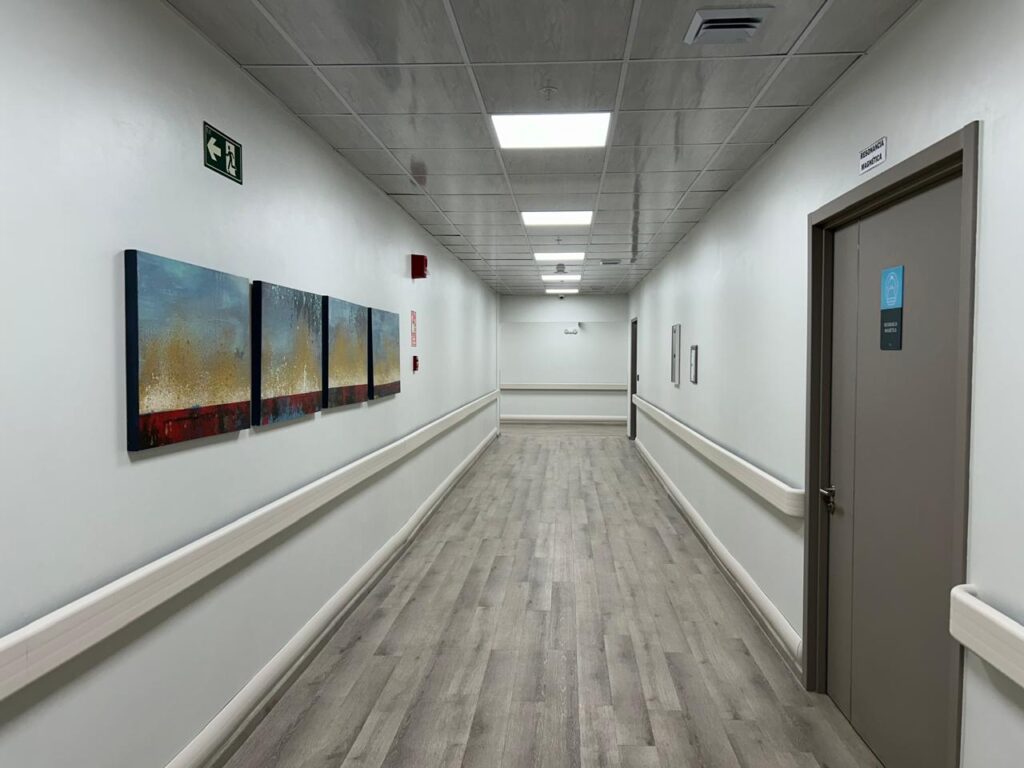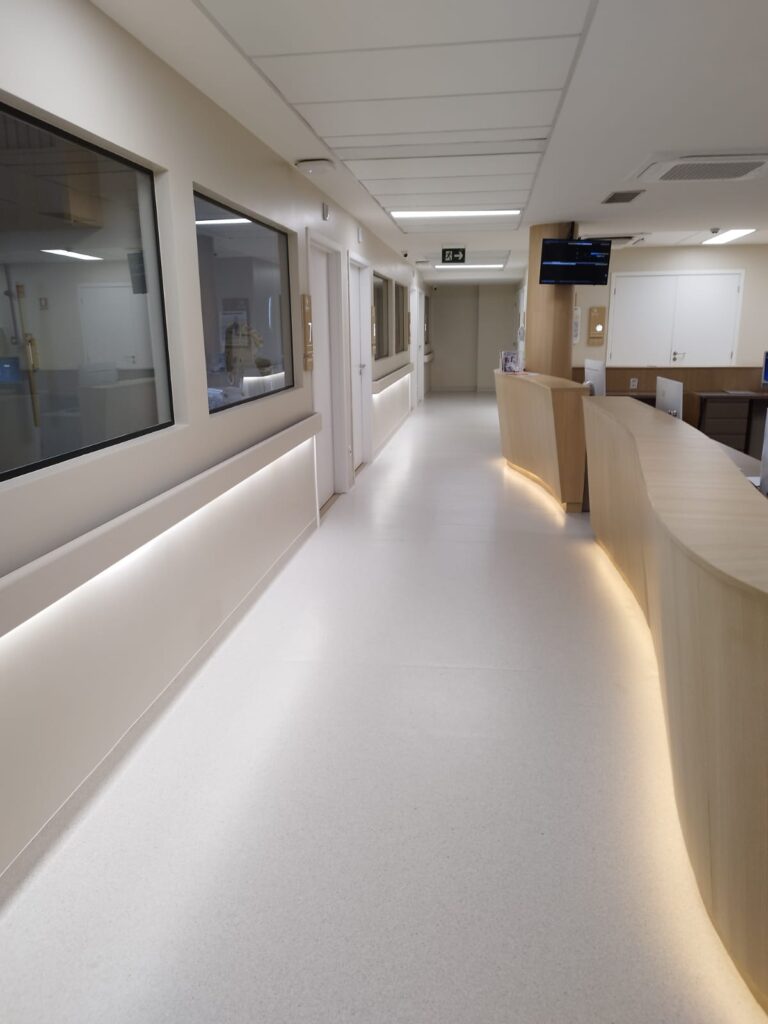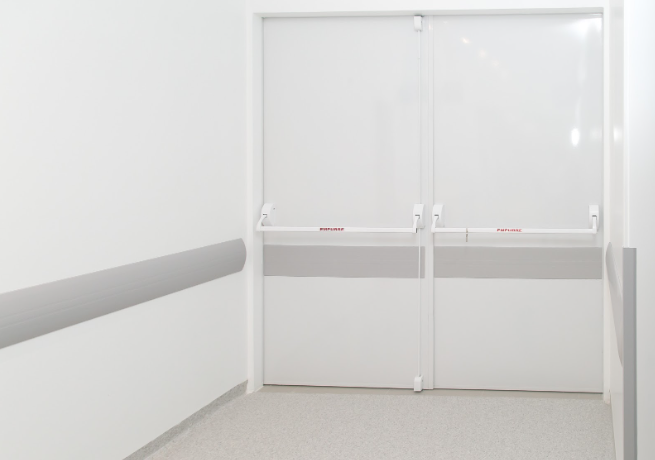Wall bumpers are indispensable elements for protecting walls in hospital and healthcare environments. They play a vital role in preventing damage caused by the constant movement of stretchers, wheelchairs, and other equipment.
In this article, we will discuss the benefits, applications, and everything you need to know about the installation and maintenance of these protectors.
What Are They and What Are They Used For?
Also known as wall protectors, these devices are designed to protect walls from frequent impacts. Made from high-resistance materials like PVC, they ensure the integrity of surfaces, increase the durability of structures, and keep hospital environments clean and well-maintained.

Where Can They Be Applied?
Wall bumpers can be installed on various types of surfaces, including:
- Masonry walls
- Wood
- Concrete blocks
- Prefabricated panels
- Steel structures
- Wood partitions
- Drywall

This versatility allows them to be used in hospitals, clinics, laboratories, and other healthcare facilities.
Installation and Maintenance
Installing wall bumpers is simple and can be done by following these basic steps:
- Ensure the wall surface is clean, dry, and free of any debris.
- Determine the ideal height for installation.
- Use screws and anchors suitable for the type of surface.
- Align the bumper correctly to ensure a professional finish.
For more detailed instructions, watch the installation video:
Maintenance is also straightforward: clean the bumpers regularly with neutral products to maintain material durability.
At What Height Should Wall Bumpers Be Installed?
The ideal height for installation depends on the specific use of the environment. Generally, it is recommended to position them between 31.5 inches and 36 inches (80 cm and 92 cm) from the floor to ensure protection of the most impact-prone areas.

Can I Install the Wall Protectors Myself?
It is recommended that the installation be carried out by a professional trained by the company or a technical installer. However, it is possible to install the wall protectors yourself as long as you follow the manufacturer’s instructions properly. Ensure the wall is finished (with painting completed), clean, and dry before starting.
Benefits of Tecnoperfil Wall Bumpers
Tecnoperfil wall bumpers offer a variety of benefits that make them essential in healthcare environments:
- Tested and approved quality
- Easy to install and clean
- Impact-resistant
- Non-flammable
- No need for painting
- Resistant to fungi and bacteria
- Mold- and moisture-resistant
Wall bumpers are practical and effective solutions for protecting walls in hospital environments. With benefits such as impact resistance, easy cleaning, and mold-resistant properties, they are essential for ensuring the durability of installations and the safety of users. Whether in hospitals, clinics, or laboratories, investing in wall bumpers is a smart choice to maintain a functional and well-maintained environment.
Explore our range of wall bumpers and find the perfect solution for your space. Download our complete catalog or visit the product page!






